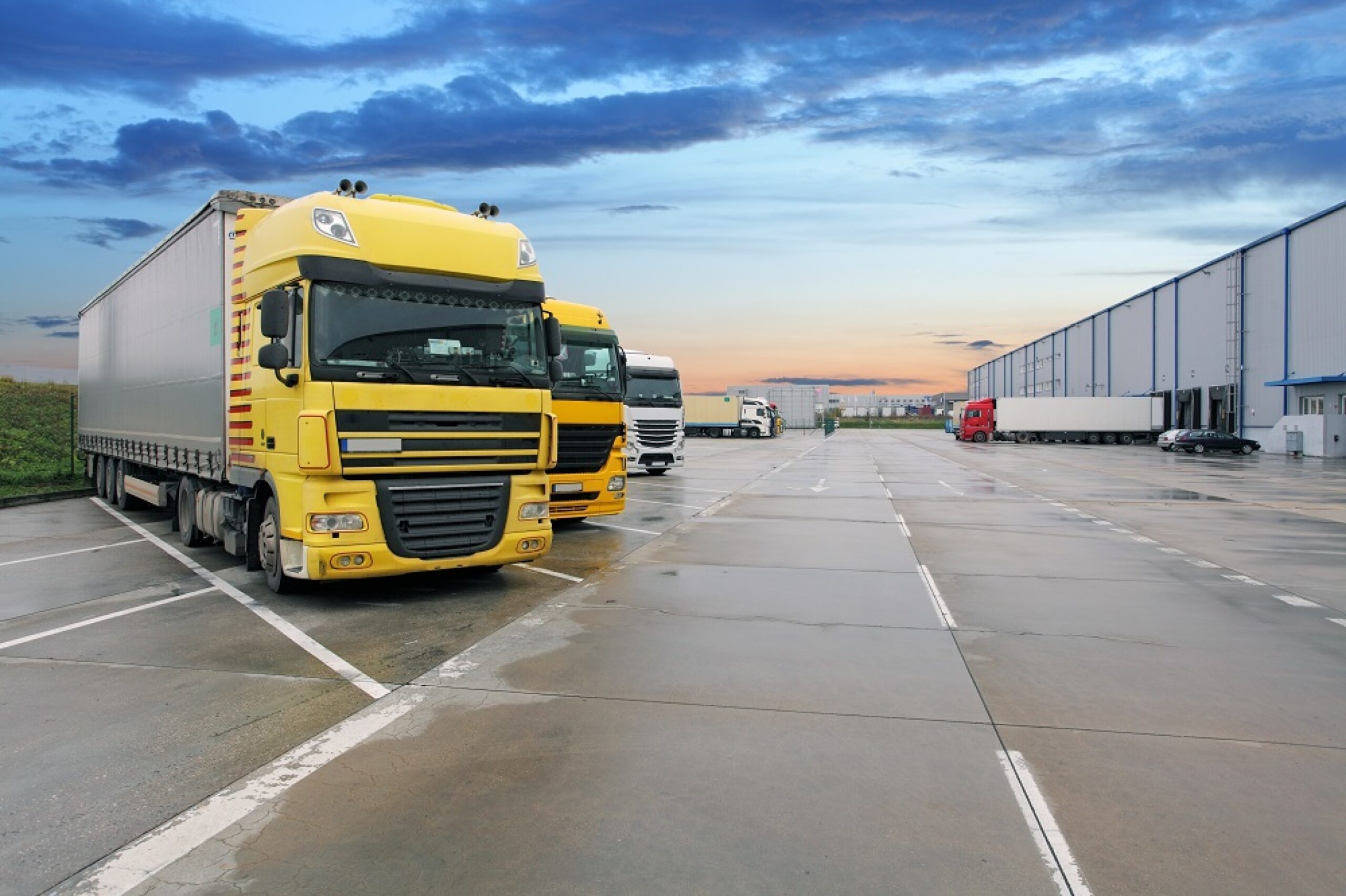
In the modern world, efficient and reliable transportation systems are essential for the smooth flow of goods and people. One of the most crucial segments of the transportation industry is land transport. Comprehensive land transport services offer an integrated approach to the movement of goods by road and rail, ensuring that businesses can reach their customers and markets swiftly and safely. This article explores the key components of comprehensive land transport services, their benefits, technologies, and how they play a pivotal role in global supply chains.
What is Comprehensive Land Transport Service?
A comprehensive land transport service refers to the end-to-end solutions provided for the transportation of goods and people via road and rail networks. This service includes various modes of land transportation, such as trucks, vans, lorries, and trains, as well as services like freight management, customs clearance, warehousing, and distribution. The goal of comprehensive land transport services is to ensure seamless coordination between different elements of the logistics process, ensuring timely, cost-effective, and secure deliveries.
Key Components of Comprehensive Land Transport Services
- Road Transportation
Road transportation is the backbone of land logistics, used for the delivery of goods over short and long distances. It involves the use of trucks, trailers, and specialized vehicles for transporting a wide range of products, from raw materials to finished goods. Road transport services can be further divided into:- Full Truckload (FTL): Dedicated transport for a single shipment that fills the entire truck.
- Less Than Truckload (LTL): Shared transportation for multiple small shipments combined into one truck.
- Specialized Vehicles: Vehicles designed for transporting specific types of goods, such as refrigerated trucks for perishables or flatbed trucks for oversized items.
- Rail Transportation
Rail transport is another crucial component of comprehensive land transport services. Trains are especially useful for moving large volumes of goods over long distances, offering a more energy-efficient and cost-effective solution compared to road transport. Rail transport is typically employed for bulk goods like coal, steel, and agricultural products, as well as intermodal shipments where cargo is transferred between road and rail systems. - Freight Management
Freight management is the strategic coordination of land transport services. This involves planning the most efficient routes, selecting the appropriate transportation modes, and optimizing the use of resources. Freight management services also cover load optimization, tracking, scheduling, and the management of freight documents. - Warehousing and Distribution
Comprehensive land transport services often include warehousing and distribution solutions. Warehouses act as storage facilities for goods before they are distributed to their final destinations. Distribution services involve the planning and management of how goods will be delivered from warehouses to customers, ensuring timely and accurate deliveries. - Customs Clearance and Documentation
For international shipments, customs clearance is a critical component of comprehensive land transport services. The process involves ensuring that all necessary customs duties, taxes, and import/export regulations are complied with. This is crucial for the smooth movement of goods across borders, ensuring no delays or fines.
Benefits of Comprehensive Land Transport Services
- Cost-Effective Solutions
One of the primary advantages of comprehensive land transport services is cost efficiency. By offering integrated solutions that combine road and rail transport, businesses can reduce the overall cost of shipping. Optimized routes, load consolidation, and efficient freight management can lower transportation costs and enhance profitability. - Reliability and Timeliness
Comprehensive land transport services focus on providing reliable and timely deliveries. With the proper planning and management, goods are delivered on time, ensuring customer satisfaction. This is especially important in industries where just-in-time inventory systems are critical, such as retail and manufacturing. - Flexibility and Scalability
Land transport services can be adapted to meet a wide range of customer needs. From small parcel deliveries to large freight shipments, comprehensive land transport services offer flexibility. Additionally, the scalability of services ensures that businesses can adjust their logistics needs based on demand, whether expanding operations or managing seasonal fluctuations. - Safety and Security
Ensuring the safety and security of shipments is a top priority in land transport. Comprehensive services include robust safety protocols to minimize the risk of theft, damage, or loss during transit. This may include tracking systems, insurance coverage, and the use of secure containers or packaging for high-value items. - Environmental Benefits
Rail transport, in particular, offers significant environmental benefits. Trains have a lower carbon footprint compared to trucks, making them a more sustainable option for long-distance land transport. Additionally, logistics companies are increasingly adopting eco-friendly practices, such as optimizing routes to reduce fuel consumption and emissions.
Technologies Driving Comprehensive Land Transport Services
Technological advancements have greatly enhanced the efficiency and effectiveness of comprehensive land transport services. Here are some key technologies that are transforming the industry:
- Transportation Management Systems (TMS)
Transportation management systems are software platforms that help companies plan, execute, and optimize their transportation operations. A TMS integrates various transportation modes and providers, offering a centralized platform for managing freight bookings, tracking, route planning, and documentation. This technology allows for better decision-making, cost reduction, and increased operational visibility. - GPS and Real-Time Tracking
GPS technology plays a pivotal role in land transport by providing real-time tracking of shipments. GPS allows businesses to monitor the location of their goods and predict delivery times accurately. This technology also helps in route optimization, ensuring that vehicles avoid traffic congestion and delays, leading to more efficient deliveries. - Automation and Robotics
Automation is increasingly being used in warehouses and distribution centers to speed up the loading, unloading, and sorting of goods. Robotics, such as automated guided vehicles (AGVs), are used to transport goods within warehouses, reducing labor costs and increasing operational efficiency. - Electronic Data Interchange (EDI)
EDI technology facilitates the electronic exchange of documents between businesses, such as invoices, shipping notices, and customs forms. EDI streamlines the documentation process, reduces errors, and speeds up the clearance process, enabling faster and more efficient movement of goods. - Blockchain Technology
Blockchain technology is being explored for its potential to improve transparency, security, and accountability in land transport services. By creating an immutable record of transactions and shipments, blockchain can reduce fraud, enhance trust among stakeholders, and ensure the integrity of transportation data.
Challenges in Comprehensive Land Transport Services
Despite its many advantages, comprehensive land transport services face several challenges, including:
- Traffic Congestion and Delays
Road transportation, particularly in urban areas, is often subject to traffic congestion, leading to delays. These delays can impact delivery times and increase transportation costs. While technologies like GPS and real-time tracking help mitigate these issues, they remain a significant challenge for land transport services. - Regulatory Compliance
Land transport services must comply with a wide range of regulations, including safety standards, environmental laws, and customs requirements. Navigating these regulations can be complex and time-consuming, especially for international shipments. - Infrastructure Limitations
The condition and availability of transportation infrastructure, such as roads, railways, and ports, can affect the efficiency of land transport services. In some regions, outdated or insufficient infrastructure can lead to delays, higher costs, and a lower quality of service. - Cost of Fuel
Fluctuating fuel prices have a significant impact on the cost of land transport. While rail transport is more fuel-efficient, road transportation remains susceptible to rising fuel prices. Fuel costs are a key factor in determining the overall cost of land transport services.
The Future of Comprehensive Land Transport Services
The future of comprehensive land transport services is shaped by ongoing technological advancements and evolving customer expectations. Here are some trends that will define the future:
- Increased Integration of Multimodal Transportation
In the future, businesses will increasingly adopt multimodal transportation strategies, combining road, rail, and even air and sea transport for seamless and efficient logistics. The integration of these modes will provide businesses with greater flexibility and cost savings. - Sustainability Initiatives
As environmental concerns grow, land transport services will focus more on sustainable practices. This includes adopting electric trucks, using renewable energy sources, and optimizing routes to reduce fuel consumption and emissions. - Autonomous Vehicles
Self-driving trucks and delivery vehicles are expected to revolutionize land transport services. Autonomous vehicles will reduce labor costs, improve safety, and increase operational efficiency, making them a key part of the future logistics landscape. - Advanced-Data Analytics
Data analytics will continue to play a vital role in optimizing land transport services. By analyzing data from GPS, TMS, and other sources, companies will be able to predict demand, optimize routes, and improve customer service.
Conclusion
Comprehensive land transport services are essential for the efficient and reliable movement of goods and people. By combining road and rail transport, freight management, warehousing, and customs clearance, these services ensure that goods reach their destinations on time, safely, and cost-effectively. The integration of advanced technologies, such as GPS tracking, automation, and blockchain, is transforming the land transport industry, making it more efficient, transparent, and sustainable. As the industry evolves, businesses that embrace innovation and address current challenges will be better positioned to meet the growing demands of global trade.
